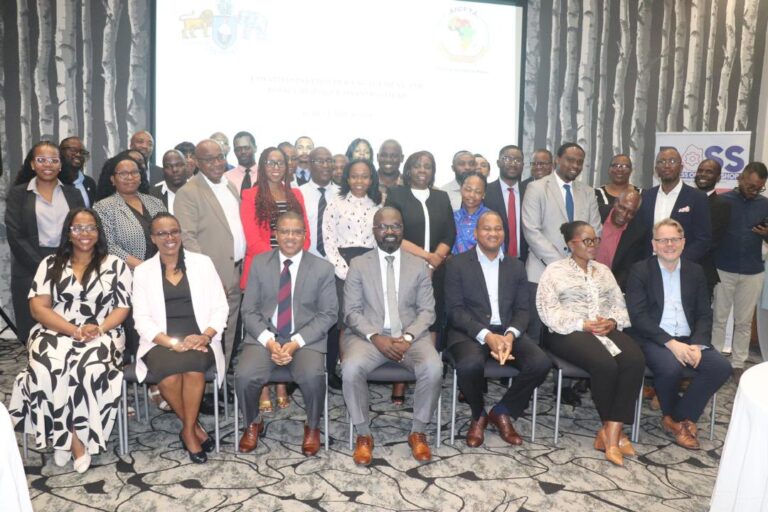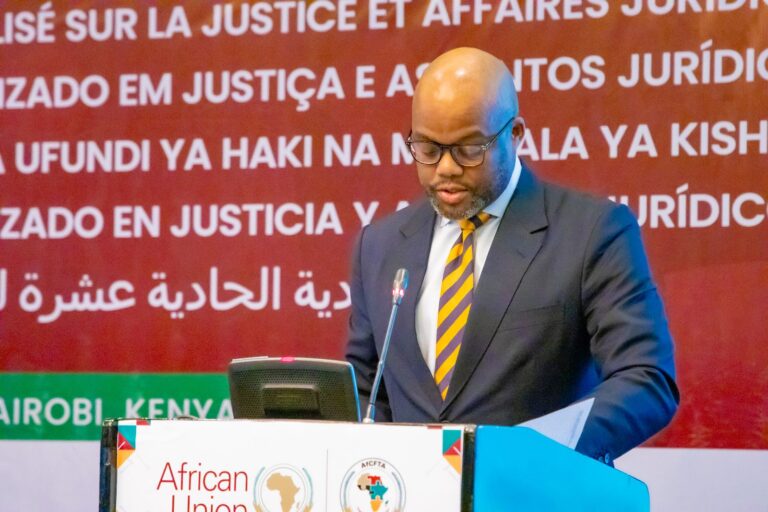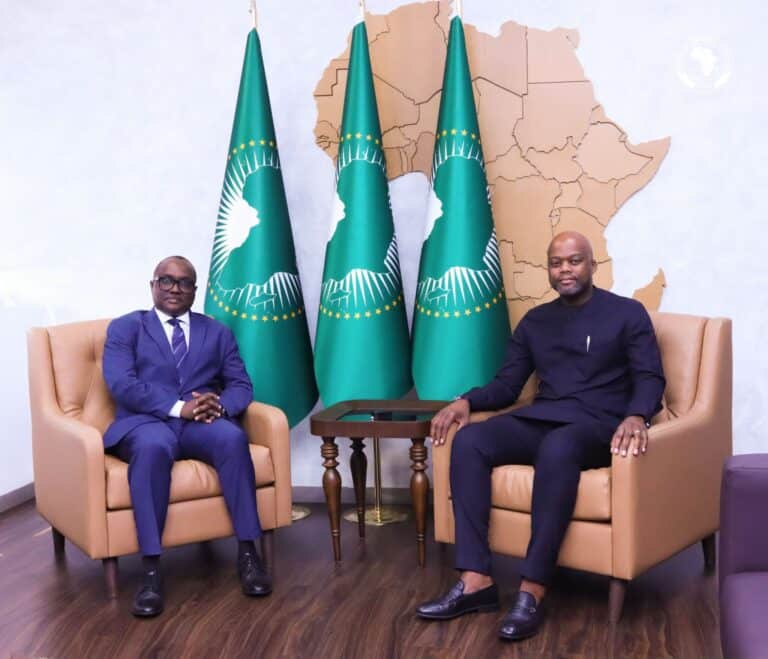The 3rd Extraordinary Meeting of the Council of Ministers of the African Continental Free Trade Area (AfCFTA), was held from 12-13 July 2023 in Nairobi, Kenya. The importance of this assembly is reflected in the need to conclude the outstanding Rules of Origin in the Automotive and Textiles sectors and to consider other crucial trade protocols.
The AfCFTA, the world’s largest free trade area by the number of countries, has the potential to reshape Africa’s economic landscape significantly, with the hope to increase intra-African trade, diversify exports, and spur regional integration. However, its fullest potential will be realized once all its components, including the Rules of Origin and Protocols on Investment, Women and Youth in trade, and Digital trade, are completely finalized and agreed upon.
A Deep Dive into the Rules of Origin
The Rules of Origin are pivotal in defining the economic architecture of the AfCFTA. Simply put, they are the criteria used to determine the nationality of a product, meaning they decide whether a product can benefit from preferential treatment under the free trade agreement. This is especially relevant in sectors such as automotive and textiles, both of which are significant contributors to Africa’s industrial and manufacturing growth.
In textiles, a clear, stringent, and well-enforced Rules of Origin can help protect and nurture the local textile industries from being undermined by cheap imports. The same logic applies to the automotive sector, which has the potential to generate substantial employment and develop ancillary industries. Ensuring that the benefits of the AfCFTA flow to the manufacturers genuinely located within Africa, rather than those simply rerouting their products through it, is the primary purpose of these Rules of Origin.
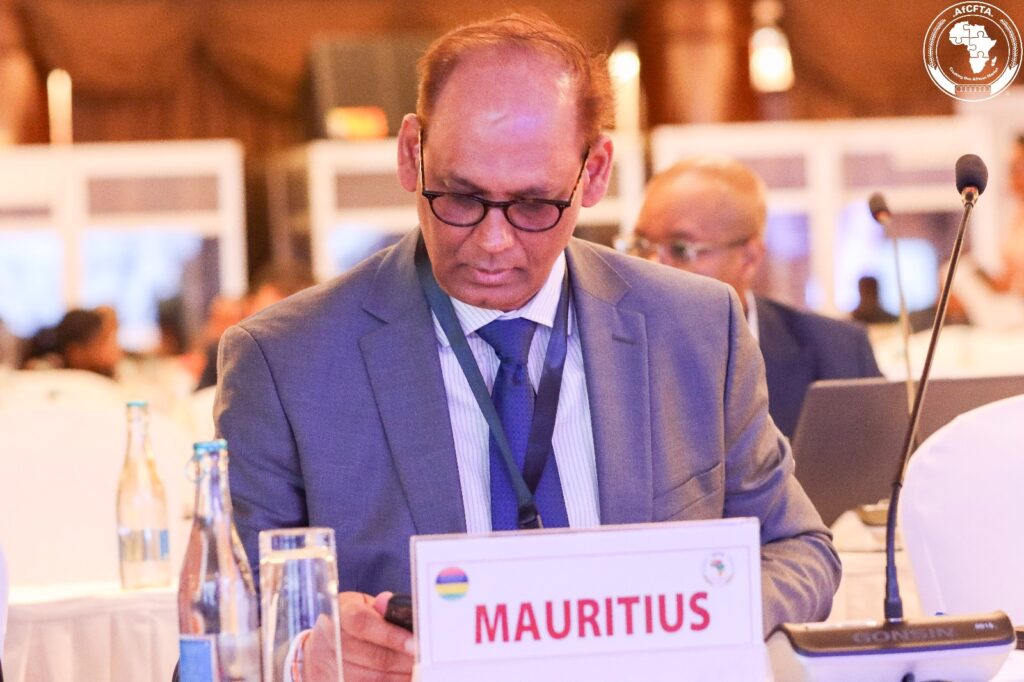
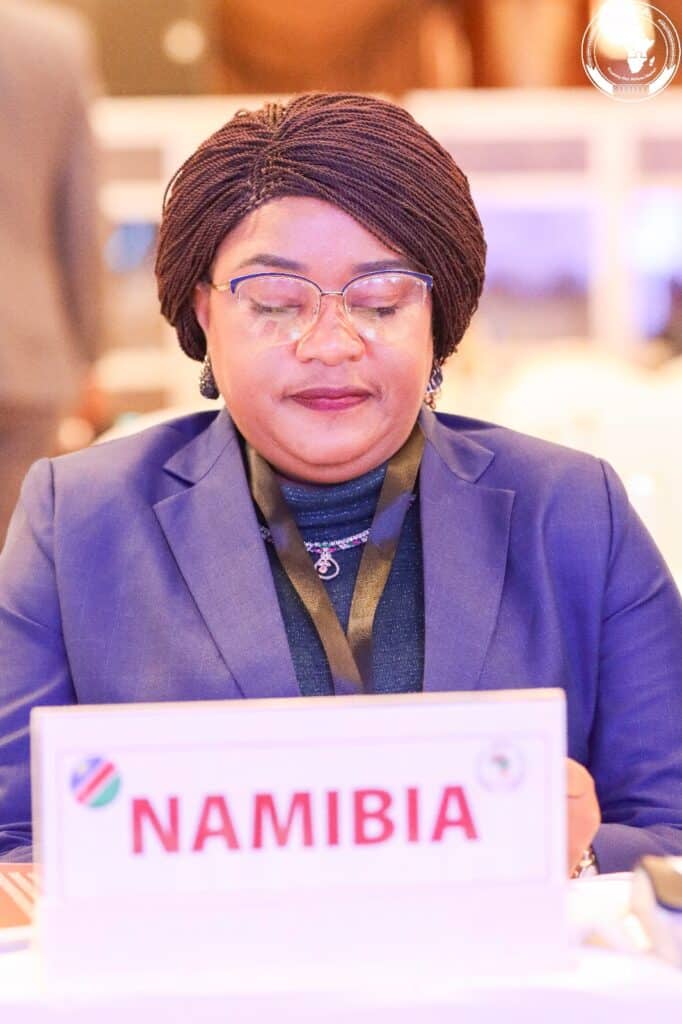
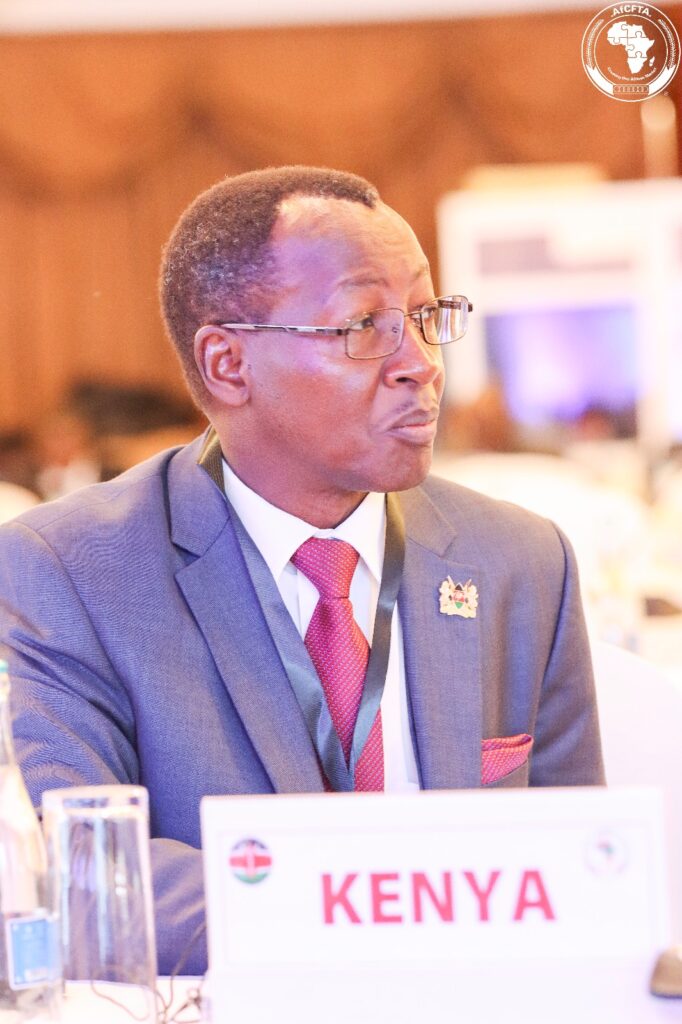
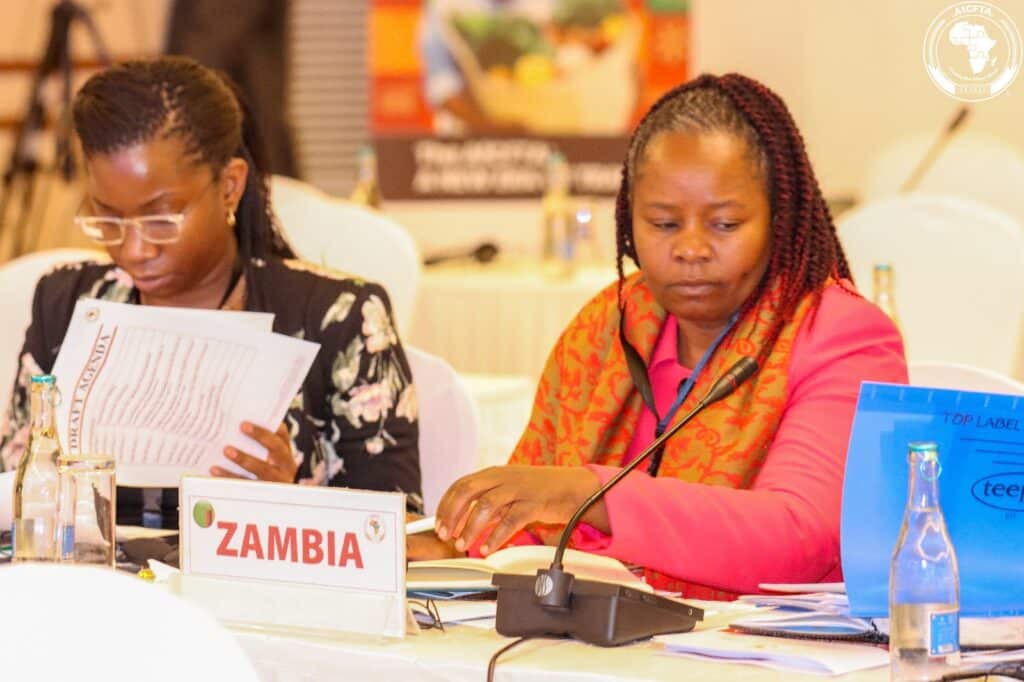
Shaping the Future of Investment, Digital Trade, and Inclusion
The Council of Ministers meeting also intended to address the Protocol on Investment, which aims to provide an enabling environment to attract investments into the continent. Harmonized investment rules are crucial to encourage cross-border investments, fostering regional integration and development.
Moreover, the Draft Protocols on Women and Youth in Trade is a crucial initiative to ensure that the benefits of the AfCFTA are inclusive and broad-based. Considering that more than 60% of Africa’s population is under the age of 25 and that women play a vital role in African economies, these protocols hold the key to harnessing the continent’s demographic dividend and promoting gender equity in trade.
Lastly, the protocol on Digital Trade is important in setting the ground rules for the booming e-commerce and digital services sectors across the continent. When implemented, it could pave the way for Africa to leapfrog into the digital economy, thereby boosting intra-African trade and fostering innovation.
Day 1: Opening
The meeting commenced with opening statements from Hon. Moses Kuria, Cabinet Secretary for the Ministry of Investment, Trade, and Industry, Kenya, followed by the Chairperson of the AfCFTA Council of Ministers, Hon. Yves Fernand Manfoumbi, and the Secretary-General of AfCFTA, H.E. Wamkele Mene. Their remarks set the tone for the productive discussions that followed.
The substantive work began with the consideration of outstanding Rules of Origin in Automotive and Textiles sectors. The AfCFTA Secretariat provided an enlightening recap on the AfCFTA Automotive Strategy and the concept of cumulation of Rules of Origin, setting the stage for a comprehensive discourse. This was followed by presentations from State Parties on national consultations about industrial interests in Chapter 87 (Automotives). An update on the Textile Strategy and the examination of outstanding Rules of Origin for Textiles and Apparel formed a significant part of these discussions.
Later in the day the focus shifted to the outstanding issues in the Protocol on Investment, particularly Articles 19 and 21, and the negotiations surrounding the Draft AfCFTA Protocols on Women and Youth in Trade, and Digital Trade.
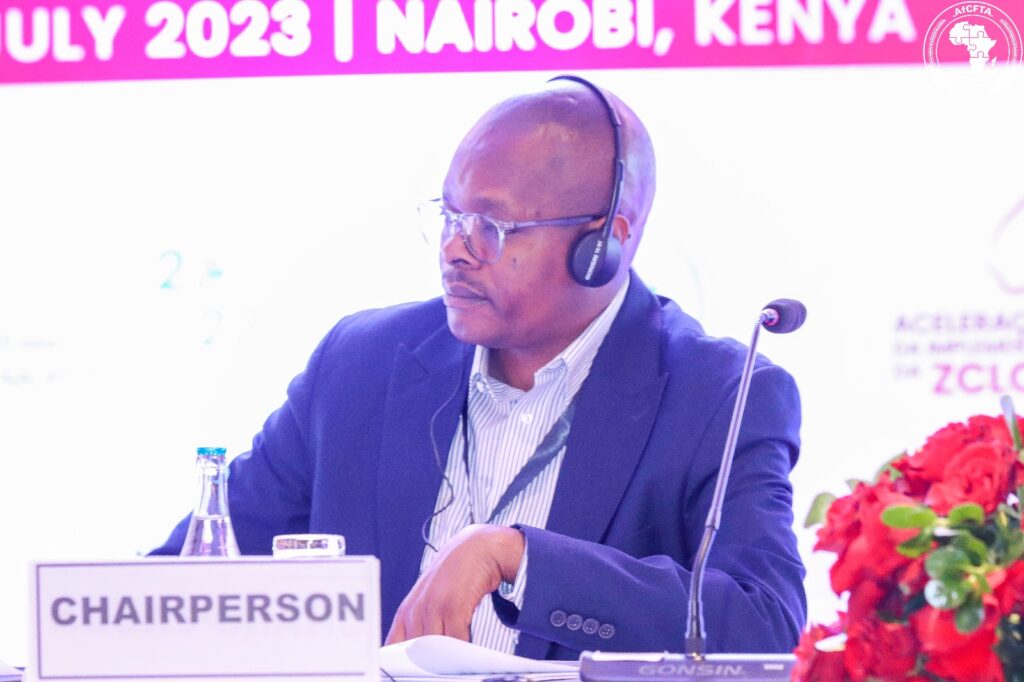
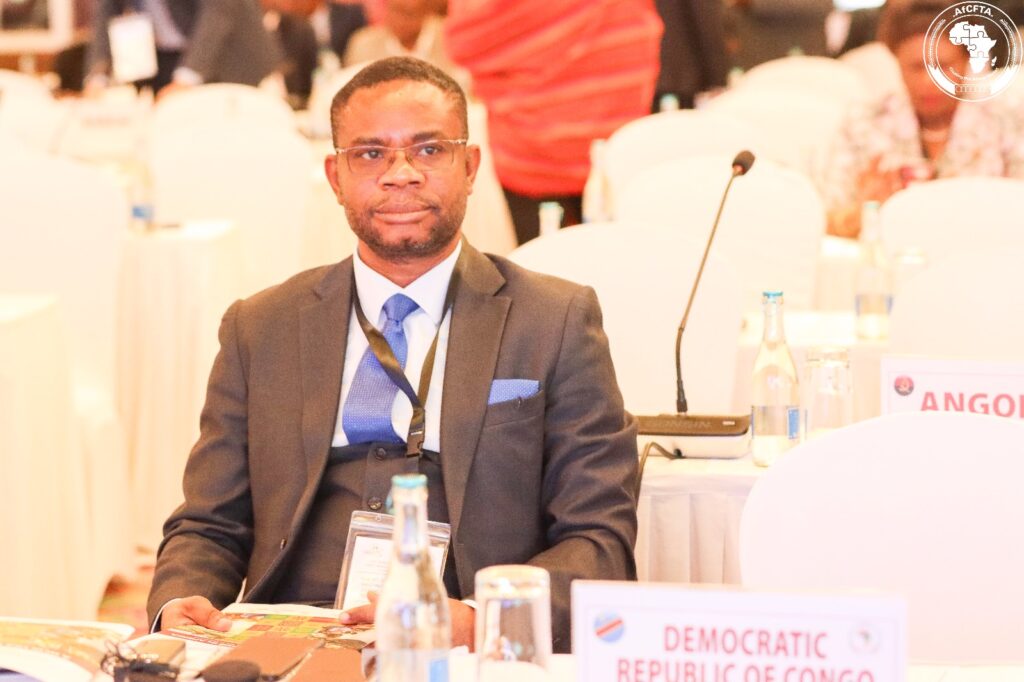
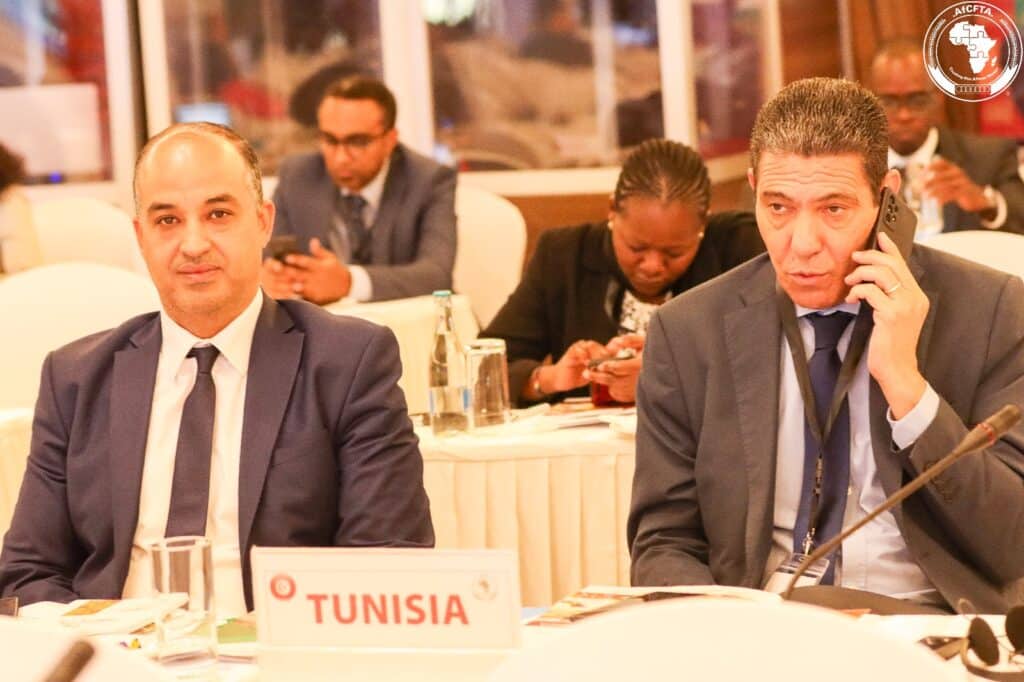
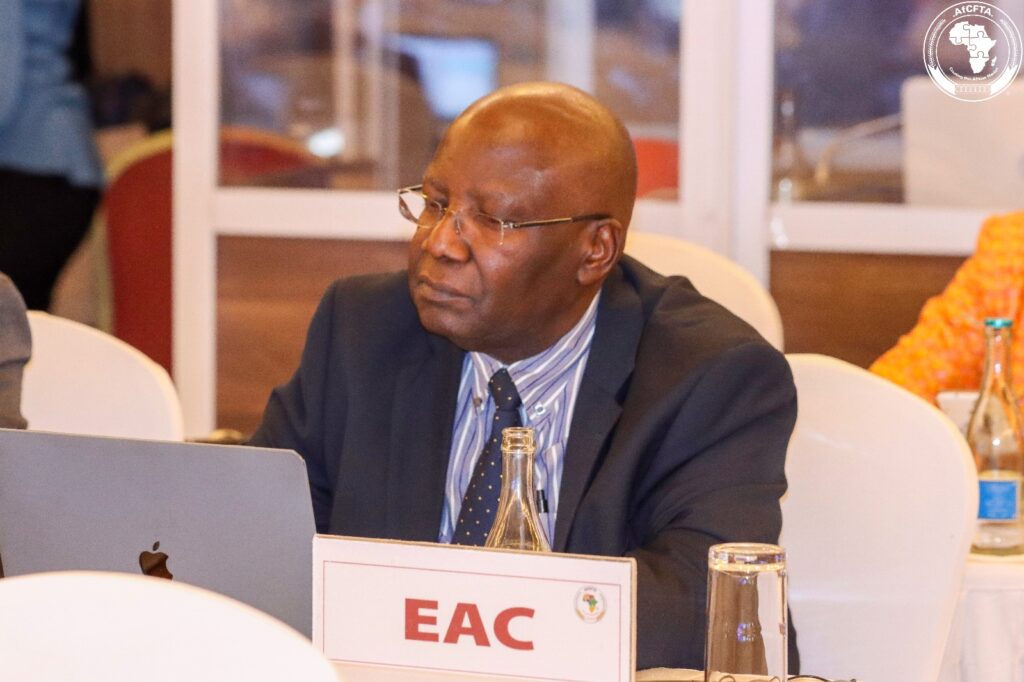
Day 2: Investment, Inclusivity, and Digital Trad
The second day, though short, was pivotal, with the Consideration and Adoption of the Report, which set the pathway for implementing the AfCFTA protocols.
The extraordinary meeting was, therefore, a significant step in steering the AfCFTA towards a more prosperous and inclusive future. It illustrated the collective effort of the member countries in fostering regional integration, nurturing domestic industries, attracting investments, and promoting digital and inclusive trade, thereby reflecting the accelerated implementation of the AfCFTA.
